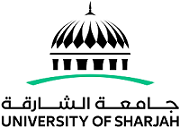Experimental investigation of magnetic induction in Anaerobic digestion /
Linked Agent
Shanableh, Abdallah, degree co-., Thesis advisor
Bhattacharjee, Sourjya, degree co-., Thesis advisor
Abdallah, Mohamed, Thesis advisor
Date Issued
2023
Language
English
Keyword
Thesis Type
Thesis
Abstract
Bioenergy has drawn substantial attention as a renewable energy resource that can complement fossil fuels in meeting the escalating global energy demand. Anaerobic digestion (AD) has been proven to be efficient in producing biofuel through the degradation of various organic feedstocks in the absence of oxygen. Several enhancement methods have emerged to maximize the AD benefits, including augmentation by nanoparticles and magnetic field application. In magnetized anaerobic digestion (MAD), an AD system is subjected to an external or internal magnetic field, where the field intensity can influence the biodegradation efficiency. To date, no study compared the performance of AD under different static magnetic fields (SMFs) and magnetized nanoparticles. This study aimed to investigate the impact of magnetic induction on the performance of AD. The scope of work covered different SMF intensities ranging between 39.9 and 88.3 mT and three types of nanoparticles, nano-sized powdered activated carbon, hematite (α-Fe2O3), and maghemite (γ-Fe2O3), with four different doses of 1-20 mg/g volatile solids (VS). The examined substrate, waste activated sludge (WAS), was anaerobically digested and the batch bottles were inoculated using AD centrate. Multiple experimental tests were carried out to characterize the WAS and centrate samples. AD and MAD performances were measured in terms of methane generation and organic removal. In addition, the microbial community developed by the end of the digestion process was observed. The outcomes of the MAD systems were compared to the performance results of a conventional AD reactor. Moreover, kinetic and statistical modeling along with energy efficiency analysis was carried out to simulate the process and assess the effects of magnetic induction and nanomaterials on AD systems. The findings revealed that the AD integrated with 20 mg γ-Fe2O3/g VS nanoparticle achieved the highest methane yield of 317.2 mL CH4/g VS throughout an operation period of 49 d
Note
A Dissertation Submitted in Partial Fulfilment of the Requirements for the Degree of Master of Science in Civil Engineering University of Sharjah Sharjah, UAE Date: 03/11/2022
Category
Theses
Library of Congress Classification
TD769 .R346 2022
Local Identifier
b1586747x


